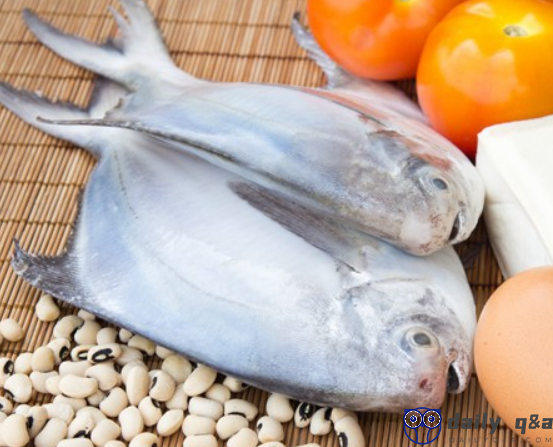In our daily life, we often take fish as the dishes on the table, because it has a variety of cooking methods, delicious and nutritious. So what's the nutrition in fish? Let's learn about it.

1. Fish contain a variety of vitamins and fatty acids
Fish is also an important source of protein. Fish is easy to be absorbed by the human body, and 100 grams of fish can guarantee half of the protein needed by the human body every day. Fish also supplies vitamin A, D, e and so on. Fish also contains a variety of fatty acids, which can prevent the increase of blood viscosity, can effectively prevent the occurrence of heart disease, and can strengthen the brain and nerve tissue and the retina of the eye. For pregnant women and infants, these fatty acids are indispensable.
What's the nutrition in fish
2. Fish contains many trace elements
Fish is also a high sodium food, which is conducive to the balance of minerals in the human body. Fish provides selenium, iodine and fluorine to human body in a natural way. So, don't worry about absorbing too many trace elements. Salmon have the most selenium, while river fish have half as much selenium. Eating 100 grams of fish a day can meet the body's daily demand for iodine, thus preventing thyroid disease. Magnesium is also indispensable to the human body. When there is not enough magnesium in the body, you feel depressed. At this time you can eat fish to make up for the lack of magnesium, to improve the mood. For students, eating more fish can promote brain activity, learn knowledge quickly and remember firmly.
What's the nutrition in fish
3. Fish contain fat
The fat content of fish is about 1 ~ 10%, which mainly exists in the subcutaneous and viscera. The fat content of different fish species is very different, such as 0.5% for Mingda fish, 5.6% for silver carp, and 10.8% for eel. Fish fat is mostly liquid with low melting point, and the content of polyunsaturated fatty acid is higher, so it is better than animal food with high saturated fatty acid, such as livestock, poultry, milk and eggs. Every 100 grams of fish meat contains 100 mg of cholesterol, but fish roe contains high cholesterol, such as 819 mg cholesterol per 100 g yellow croaker roe and 486 mg cholesterol per 100 g Mahal caviar.
Copyright notice
This article only represents the author's point of view, not the standpoint of this station.
This article is authorized by the author and cannot be reproduced without permission.